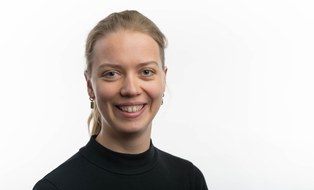Combinatorial solidification approaches for the production of high-quality plant protein-based foods
A significant amount of greenhouse gas emissions in food production can be reduced by replacing animal protein with plant-based protein. Alternative products are designed to resemble animal-based foods in appearance, texture, and taste. There is a growing demand for firm, sliceable products with appealing textures; however, consumers currently rate mouthfeel, firmness, chewiness, and consistency as inadequate. A better control and targeted adjustment of texture through solidification processes, as already established in animal-based products, is urgently needed.
The aim of this research project is to investigate the effects of different combinations and sequences of solidification approaches on model masses that mimic vegan sausage and sliced cheese substitutes. Commercially available plant-based protein preparations (pea, rapeseed, and soy) will be crosslinked and solidified without the use of additives by combining chemical, physical, and enzymatic methods with processing steps such as drying and pressing. The kinetics of crosslinking and the formation of structure will be analyzed. The plant-based sausage and cheese alternatives produced using the established sequences will be characterized in terms of material properties, microbiology, and sensory attributes, and compared to conventional animal-based products.
Cooperation partner:
University of Hohenheim, Institute for Food Science and Biotechnology, Department of Food Material Science, Prof. Dr. Jochen Weiss/Prof. Dr. Monika Gibis
Financial support:
The Research Association of the German Food Industry (FEI), Bonn; project ID: 01IF22862N
Project researchers and contact:
 © Sven Ellger
© Sven Ellger
Research Assistant
NameM.Sc. Elena Köster
Product Development
Send encrypted email via the SecureMail portal (for TUD external users only).
 © Sven Ellger
© Sven Ellger
Prof. Dr. rer. nat. Anja Maria Wagemans (geb. Oechsle)
Send encrypted email via the SecureMail portal (for TUD external users only).

